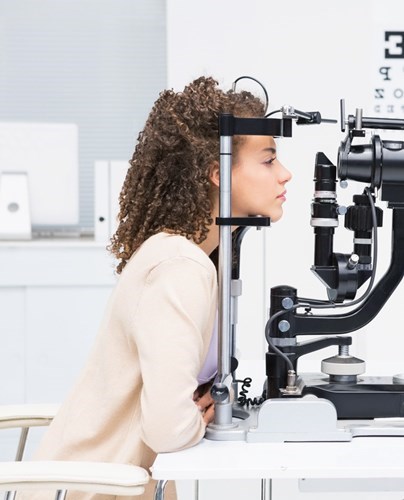How Often Should You Have An Eye Test?
02 February 2020

We are often asked ‘how often should you have an eye test?’
Over time, the quality of your eyesight will change, be that over a prolonged period of time (often so long, you don’t even notice) or a big sudden change - it’s a natural occurrence that the majority of people will experience over the course of their lives. Generally, we advise you book an eye test every two years to check for any visual changes, however if you are struggling with any eye problems, contact your optometrist earlier.
When is best to book an eye test?
Having an eye test will identify the changes in your vision and it is a vital part in the potential discovery of eye conditions and what would be your best option in terms of vision correction. This is particularly important if you have a job that requires you to make use of your eyes, such as anything driving related or operating any kind of machinery.
If there are changes in your night vision:
Are you able to make out the other cars and road signs clearly? When this starts to deteriorate, this may be one of the first signs of your vision changing. If halos are present around lights, you are having issues with distinguishing objects or you are unable to read certain signs, it’s time to book an eye test.
You have an eye infection or have discharge:

Eye tests aren’t just to establish the quality of your vision but they are also to check the general health of your eyes and surrounding area like the eyelids.
Whilst some eye infections will clear up on their own, there are some that are contagious like conjunctivitis, and some that some with potential permanent damage - if there is redness, itchiness or discharge coming from your eye, please book to see an optometrist.
If you are experiencing headaches or migraines:
Yes, headaches are a sign of stress or tension, but they are also a very good sign of your vision changing.
Often with migraines, you may experience auras, or see dots for any time period around an episode. This may be harmless but could also be a sign of an underlying condition.
So whether you’re suffering with consistent headaches or migraines, it’s best to book in with an optometrist to make sure that everything is OK with your vision.
You are experiencing trouble with visual disruptions:
Visual disruptions are common when you are experiencing a migraine. This may come in the form of floaters that you may see in your line of vision.
If these visual disruptions are sudden occurrences, it’s best to contact an optometrist to ensure this is not a sign of retinal detachment.
A health condition could be affecting your vision:
Did you know that your general health severely affect your eyes? From the food that you eat to your quality of sleep; this all affects the functionality and effectiveness of your vision. Conditions such as diabetes or lupus or any other health condition that may have an implication on your vision will require you to pay a lot more attention to your eye health.
If this is something that may be relevant to you, then it’s best to book an eye test to ensure the quality of your vision is the best it can be.
If you are struggling with constant eye fatigue:
You may suffer with eye strain if you work on a computer for several hours on end, with no breaks. If, however, this continues for a prolonged period of time, it may be a sign of an infection or an underlying condition that may need looking at. If you struggle with constant pain during eye movements, book in for an eye test.
If you have trouble with focusing:
If you have difficulty focusing on a specific object in the distance or you are struggling with objects going blurry in your field of vision, such as reading small print or looking at the screen of a computer or tablet, consult your optometrist to check your eye health. Although this may just mean you need a visual aid to assist you, it could also indicate an eye condition.
If you are struggling with sensitivity to light:
You may have a sudden sensitivity to light that could mean you require a visual aid, an infection or a potential central nervous system disorder such as meningitis. Please contact your optometrist if this is something you are suffering with.
If you have had laser eye surgery, we advise that you attend an eye test every two years to check the quality of your vision and to maintain your Lifetime Guarantee.
Back to Blog
